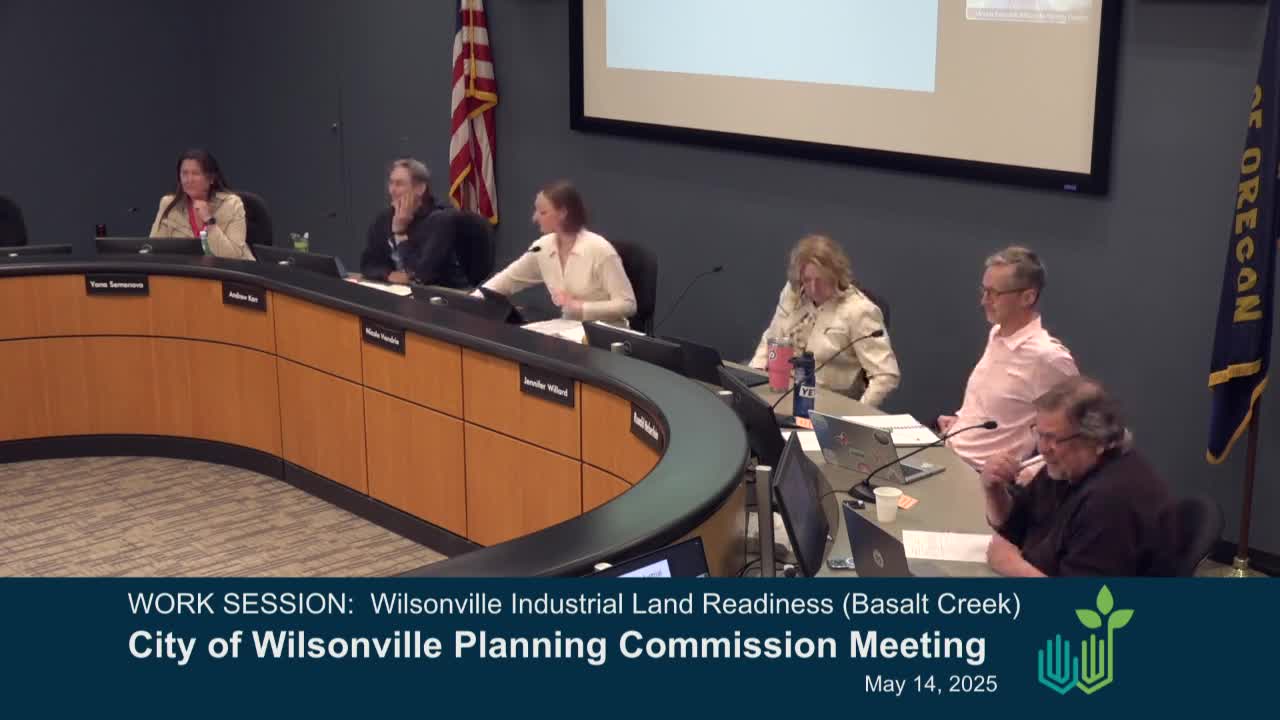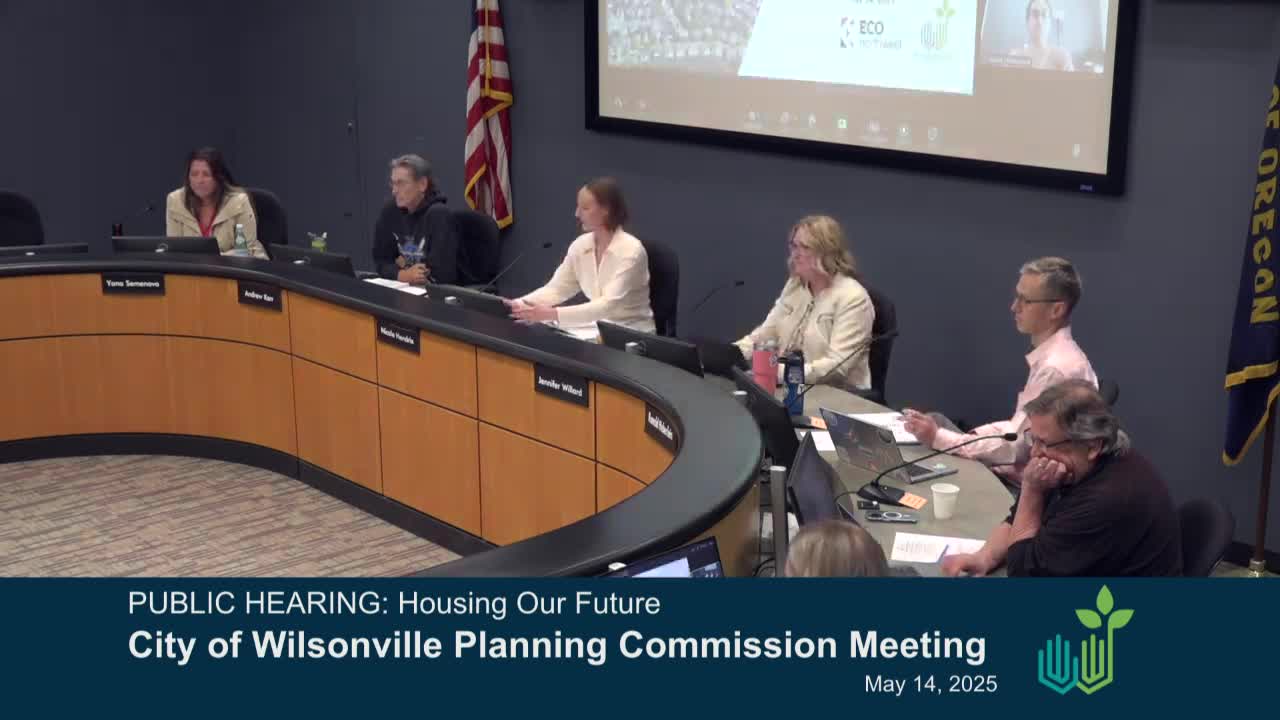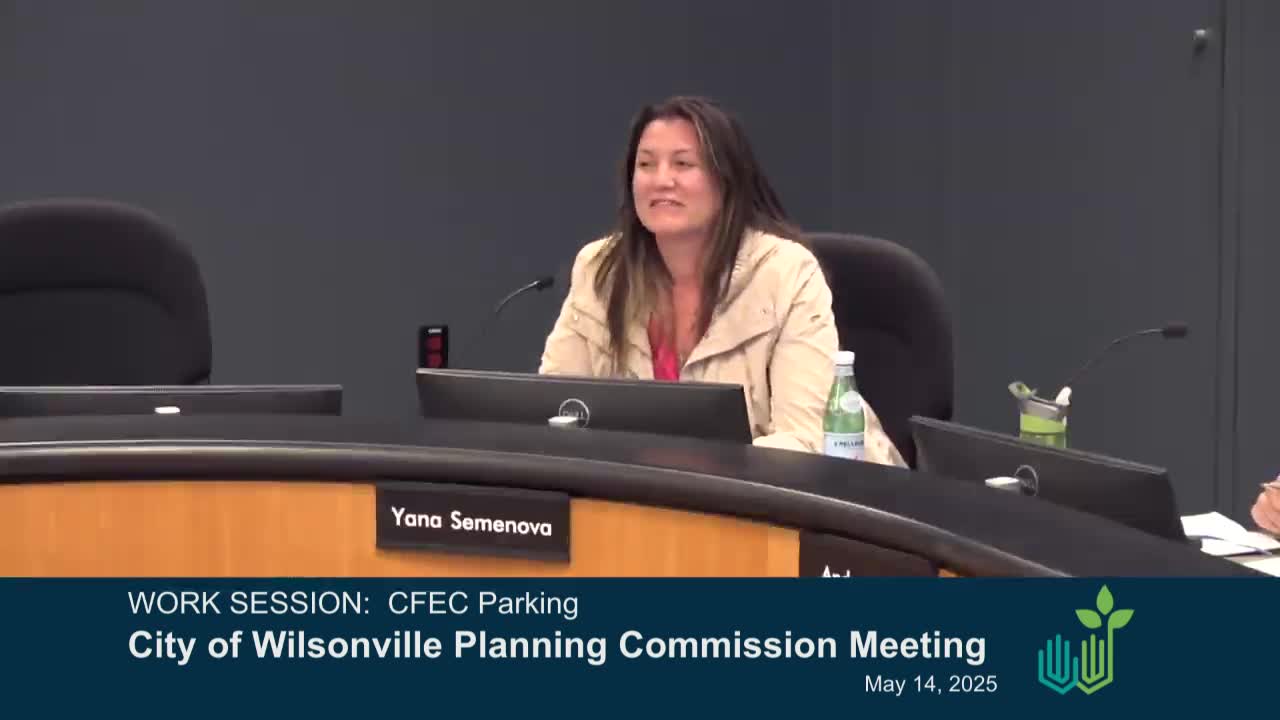Article not found
This article is no longer available. But don't worry—we've gathered other articles that discuss the same topic.

Planning commission reviews proposed Craft Industrial zone for Basalt Creek; staff to refine permitted uses and residential rules

Wilsonville planning commission recommends adoption of Housing Our Future reports to city council

